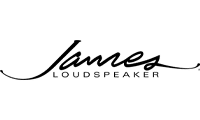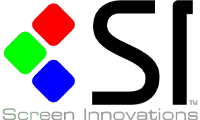Low-Voltage Wiring & Structured Cabling | Portland, OR

Wolf AV Has It Handled
Unleash the Potential of Your Technology
Ever wonder how your security cameras, garage door opener controls, or landscape lighting works seamlessly? It’s all thanks to low-voltage wiring. This intricate network carries not just electricity but also information across various devices.
Navigating different types of wiring might be confusing. However, with Wolf AV, you don’t have to worry. We can take care of all of your needs related to low-voltage wiring in Portland. If you’re looking into new construction pre-wiring or retrofitting existing home wiring, we’ve got your back. Remember: low risk doesn’t mean no risk, so let our professionals do what we do best. We’re here to help!
- Ensure a successful connection with your home automation system.
- Work with professionals with years of experience.
- Decrease the risk of electrical shocks and fire hazards.
Whatever You Need – We’ve Got It
Different Types of Low-Voltage Cables | Portland, OR
When it comes to wiring for low voltages, the cables aren’t all alike. Depending on your specific application, one type might outshine the others. Below are a few of the most common low-voltage cables we work with here at Wolf AV.
Unshielded Twisted Pair (UTP) Cables
Twisted pair cables for low-voltage applications, particularly unshielded twisted pairs (UTPs), have become a go-to choice for many in Portland and beyond. Why? Because they’re cost-effective without skimping on performance. In fact, Cat6A is often considered the most cost-effective option for this kind of wiring setup.
Cable Gauge Selection
Selecting the right cable gauge can make or break your low-voltage system’s success. The wire gauges typically used range from tough-as-nails 12-gauge to more delicate but equally essential 24-gauge options. No matter what you need, whether that’s coaxial cables designed specifically for carrying those important low-voltage signals or high-speed data-transferring fiber optic ones, we’ve got you covered.

Applications of Low-Voltage Wiring
What to Expect
If you’ve ever used a security camera, flipped the switch on your landscape lights, or surfed the web at lightning speed, you’re benefiting from low-voltage wiring. This versatile technology powers our everyday lives in ways we often take for granted.
We’ll start with a consultation if you’re interested in low-voltage wiring. Then, we’ll talk to you about the various applications, including landscape lighting and high-speed internet. Putting things into perspective, your outdoor lighting setup relies heavily on low-voltage cables. These wires give life to everything from accent lights that highlight architectural features to pathway lights guiding your steps after sunset.
Structured cabling also serves as one cornerstone for high-speed internet connectivity. Guess what kind of wire is predominantly used here? Low-voltage cable! This technology lets us download movies faster than popping popcorn and makes video calls so clear they feel like face-to-face chats.




























Wiring Services | Portland, OR
FAQs
What exactly is low-voltage wiring?
Low-voltage wiring is essential for a variety of uses, including surveillance cameras, garage door opener controls, and internet connectivity. They’re also key components in power infrastructural technologies across commercial buildings and multifamily apartment complexes.
The wire thickness for devices that use low voltage generally varies from 12-gauge to 24-gauge. Deciding which one is right depends on your requirements.
What are the best practices for low-voltage wiring?
How long does it take to install this type of wiring?
What are some safety considerations in low-voltage wiring?
Why are UTPs and other cables used?
Whether you’re illuminating a landscape, patio, or pathway, UTP cables are a dependable choice for low-voltage lighting installations, offering both performance and cost-effectiveness.
